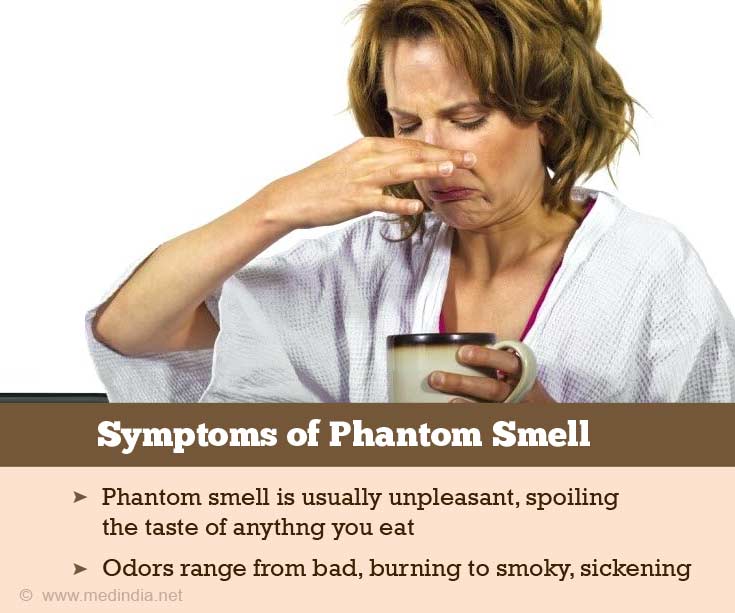What are the Symptoms & Signs of Phantosmia?
The primary symptom of phantosmia is the perceived sensation of smell in the absence of the odor. Some people get a feeling (aura) of the impending sensation. In general, the initial spontaneous episode of short duration (5 to 20 minutes), occurs between the ages of 15 and 30 years. Later, the odor occurs more frequently from each month to each week to each day, over the range of 6 months to a year.
If you are eating, drinking or just sitting around, you sense this odor. It becomes difficult to eat or drink. The odors range from bad, burning, smoky, smelling of tobacco or sulphur gas, rotten, sickening to indescribable.

The odors in phantosmia are classified as:
- Torquosmic: Chemical, burned, or metallic odors
- Cacosmic: Decayed, rotten, or fecal odors
- Mixed: Combined torquosmic and cacosmic odors
The symptoms vary between the 2 types of phantosmia.
Peripheral:
- The odor can be reduced by forced crying. Surgical procedures (inserting neuropatties in the olfactory region) can help change the smell
- Waking up without sensing any foul smell, but a stimulus may suddenly trigger the foul smell
- One side of the nostril is affected or is worse than the other side. Taping the nostril may have a beneficial effect
- Cocaine (has an anesthetic effect on the nerves) is applied as a drop on the olfactory cleft. However, patients may risk completely losing their sense of smell (anosmia)
Central:
- Nothing helps to reduce the awful odor
- The bad smell lingers throughout the day and night
- You are unable to figure out which side of the nostril is badly affected. Taping the nostril has no effect
- There is no effect of topical application of cocaine on the olfactory cleft, though this could be due to the inappropriate application
What are the Consequences of Phantosmia?
When you cannot get rid of this foul odor from your food, your quality of living is affected. Can you imagine being forced to eat food that seems to smell like feces? You lose your mood as well as your weight. You may entertain thoughts of suicide because the physician is unable to provide a suitable solution to tackle this problem.







